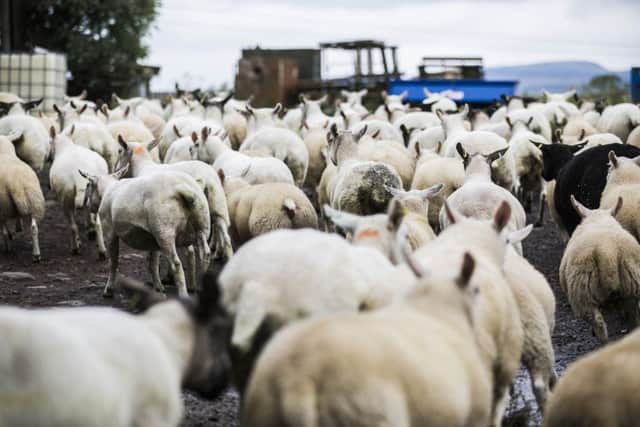Alan Laidlaw: Farmers are dying to put food on our plates


As harvest time reaches its peak, farmers are now more than ever encountering risks as they endeavour to feed the nation. The combination of heavy machinery, exhausted farmers, weather and financial pressures can lead to potentially fatal mistakes. On top of this, the pressure and isolation of the job can take a heavy toll on mental health.
The backgrounds to these tragedies are complex – a lack of money to reinvest in safer, modern machinery; the necessity of often working alone; jobs becoming more hands-on and an ageing workforce are a recipe for disaster.
Advertisement
Hide AdAdvertisement
Hide AdMental health is another huge concern – more than one farmer a week in the UK dies by suicide. In the face of Brexit uncertainty, added to the worries about bad weather and other uncontrollable factors, it is not difficult to see how easy it is for farmers to become stressed.
We can’t brush off stress as ‘just part of the job’ – a cultural shift needs to take place in our sector about how farmers think about mental health.Already, there are some brilliant charities that have been set up aiming to initiate this shift. The Farm Safety Foundation is one of those leading the way. Its Farm Safety Week encourages those living and working in the industry to engage in real, worthwhile change that starts at a behavioural level, while its Mind Your Head campaign underlines the importance of looking after mental health out on the farm.
Of course, the Royal Scottish Agricultural Benevolent Institution (RSABI) is also a lifeline for many Scottish farmers who are struggling to keep their heads above water. Providing emotional, practical and financial support to farmers, in spring this year they reported a worrying increase in the number of farmers seeking their help over the previous 12 months.
RSABI makes the key point that we need to take action when we see changes in someone who might not even recognise that they have a problem. Talking about feelings might be difficult for many in our industry, but this is exactly why a cultural change needs to take place.
By looking to role models within our community, it makes it that bit easier to open up ourselves. Doug Avery’s Resilient Farmer tour around Scotland last year is a prime example of that. Doug faced the toughest challenge of his life when his New Zealand farm was destroyed by drought and earthquakes, but managed to come out of the other side by reaching out for support in his community.
Through work by people like Doug, our sector can see it’s okay to need help and to ask for it. Reaching out for help might be a difficult conversation, but it could be one that saves a life.
This cultural shift towards the way we look at farming needs to happen not only at grassroots farming level, but at consumer level too. Farmers play such a vital role in maintaining the country’s rural areas and producing food for the nation that their problems should be aired to a wider audience.
Especially at harvest time, farmers are exhausted in their efforts to gather crops in a short window of time – this effort must be appreciated by consumers. More awareness needs to be raised about farm safety campaigns, especially when HSE reports that seven of the 39 people killed on farms last year were members of the public. Instead of expressing frustration for delays on country roads, why not smile and wave? After long hours it can make all the difference to the well-being and mental health of our farmers.
Advertisement
Hide AdAdvertisement
Hide AdThings need to change in the farming community to really have an effect on these alarming figures – the cavalier attitude towards safety on farms needs to become a thing of the past and we need to work towards de-stigmatising mental health.
This can only be done by working together as an industry, holding each other accountable to our safety practices and making sure we reach out if we think a fellow farmer might be struggling.
Together, we can make safety and well-being the norm in our sector, not the exception.
Alan Laidlaw, chief executive of the Royal Highland and Agricultural Society of Scotland (RHASS).